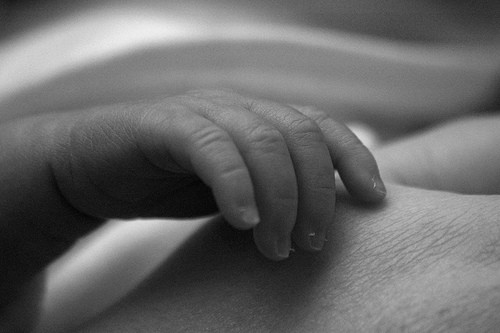
A sugar-based gel helps in the treatment of low blood sugar and brain damage in premature and small babies.
Researchers in New Zealand revealed that the dextrose gel - an oral glucose gel, was highly effective in treating neonatal hypoglycaemia, a medical condition with an abnormally low level of blood sugar after birth.
Maternal diabetes, premature birth, low birthweight are some factors that increase the risk of neonatal hypoglycaemi, a condition in which plasma glucose level will be less than 30 mg/dL on the first day after birth and below 45 mg/dL in the following days.
According to health experts, low blood sugar levels when left untreated have a negative impact on the baby's mental function and become life-threatening by causing heart failure or seizures.
Currently, the condition is treated by additional intake of breast milk or formula. However, the treatment does not help sometimes, requiring babies to be admitted to intensive care and begin treatment with intravenous glucose.
Dextrose gel is used to treat the condition in adults who are diabetic, but there is very little evidence to show its effectiveness in newborns.
The new study involved 514 premature babies born at the Waikato Women's Hospital in Hamilton, New Zealand. The babies were born at 35 weeks of pregnancy and were two days old. Of the total, nearly half (242) developed hypoglycaemia. Some of the babies were given dextrose gel and the rest a placebo gel.
Researchers found that the glucose gel helped avoid admission to intensive care and formula feeding. "In the past, babies with hypoglycaemia have often been given formula in the first few hours after birth, and if that did not work, then they were admitted to intensive care and put on a drip," Study leader Professor Jane Harding from the University of Auckland. "The dextrose gel improves the rate of breast feeding and we think this might be because babies stay with their mothers, and are not given formula in the first few hours to manage their hypoglycaemia."
Professor Harding said that the over-the-counter medication is safe, inexpensive and provides better results than treating the condition with only extra feeding.
"Our study is the first report in babies showing that dextrose gel massaged into the inside of the cheek is more effective than feeding alone for treating hypoglycaemia, and is safe and simple to use", said Harding. "Dextrose gel treatment costs roughly $2 per baby and could help reduce admissions to neonatal intensive care for treatment with intravenous glucose-not only reducing costs but importantly, keeping mothers and babies together to encourage breastfeeding."
The study has been published in the journal The Lancet.
Listed below are some symptoms of the condition, as provided by Medline Plus, the US National Institutes of Health's web site.
- Pale skin with a bluish tinge
- Sweating, irritation
- Breathing difficulties
- Loose muscles
- Difficulties in preserving warmness of the body
- Difficulties in feeding
- Vomiting

















